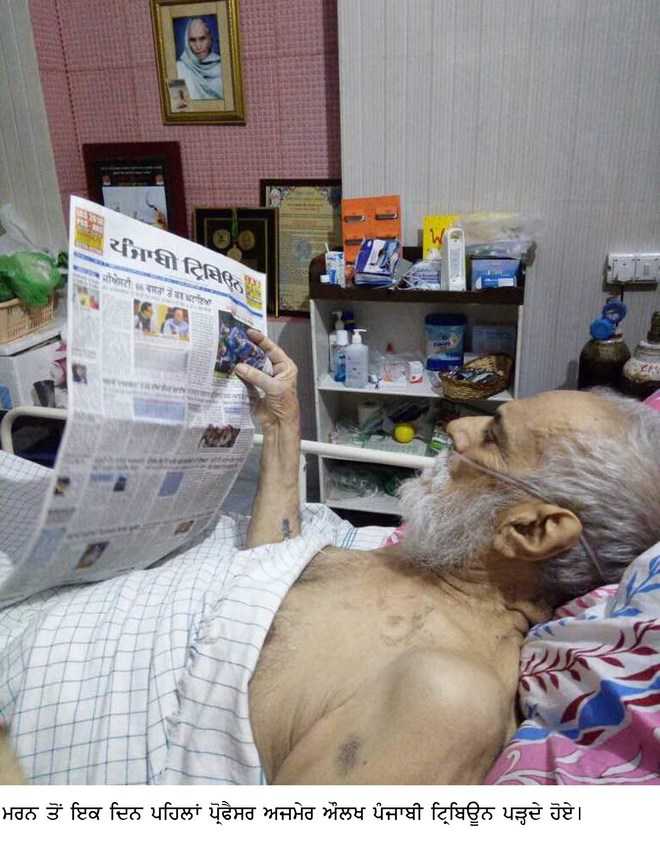Tribune News Service
Chandigarh, June 15
Eminent Punjabi playwright Ajmer Aulakh, known for introducing tales centred on small and marginal rural peasantry and its social-economic complexities to the Punjabi theatre world, passed away at his Mansa house today. He was 75.
The last rites will be performed at Mansa at 10 am tomorrow (Friday), his widow Manjit Aulakh said.
He had been admitted to a private hospital in Mohali for several weeks for spinal treatment before being discharged on June 10.
Aulakh was honoured with Bharatiya Sahitya Akademi Award and Shiromani Sahitkar Award by the Punjab Languages Department for his contribution to Punjabi literature and theatre. He started his academic career in 1965 as a Punjabi lecturer at Nehru Memorial College, Mansa, and served there for about four decades. He authored several books in Punjabi. He remained at the forefront of people’s struggles and also returned his Sahitya Akademi Award during the 2015 intolerance debate.
Lahore-based Kitab Trinjan, a Facebook page dedicated to the shared heritage of the Punjab, hailed Aulakh “as author of 10 brilliant plays about the dissolution and pauperisation of Post-Green Revolution farmers. Aulakh did in drama what writers Gurdial Singh, Ram Swarup Anakhi and Sukhwant Kaur Mann did in fiction”.
Thespian Gursharan Singh would often hail him as Brecht (German playwright Bertolt Brecht) of Punjabi theatre. Known for his progressive views, Aulakh was arrested during Emergency and remained in Bathinda Central Jail. He grew up under the influence of the Muhjara Movement of tenant landless farmers seeking land ownership rights in 1950s. He was a friend of Naxal leader Hakam Singh Samaon from school days.
Aulakh started writing one-act plays in early 1970s, but as a dramatist he became popular after his play ‘Arbad Narbad Dhundukara’ became popular at college youth festivals. That was his first major literary creation.
Was driven by progressive ideas
- Ajmer Aulakh started writing plays in early 1970s, but as a dramatist he became popular after his play ‘Arbad Narbad Dhundukara’ became popular at college festivals
- Known for his progressive views, Aulakh was arrested during Emergency
- He grew up under the influence of Muhjara Movement of landless farmers in 1950s
Unlock Exclusive Insights with The Tribune Premium
Take your experience further with Premium access.
Thought-provoking Opinions, Expert Analysis, In-depth Insights and other Member Only Benefits
Already a Member? Sign In Now










